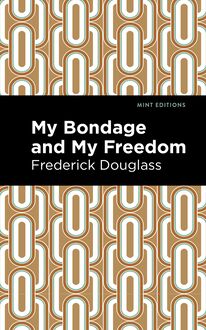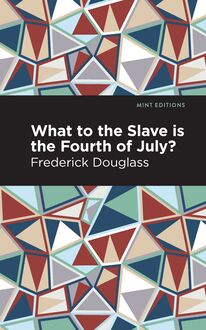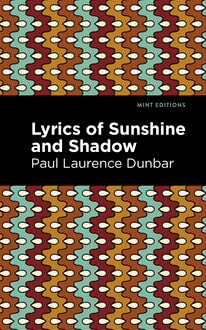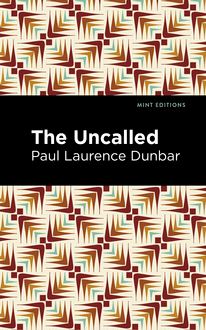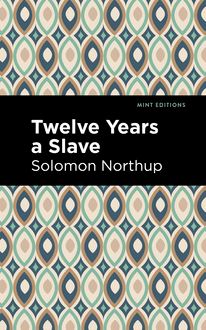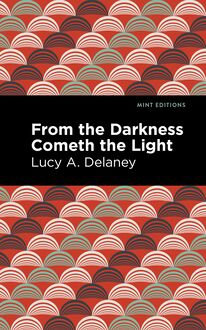-
 Univers
Univers
-
 Ebooks
Ebooks
-
 Livres audio
Livres audio
-
 Presse
Presse
-
 Podcasts
Podcasts
-
 BD
BD
-
 Documents
Documents
-
- Cours
- Révisions
- Ressources pédagogiques
- Sciences de l’éducation
- Manuels scolaires
- Langues
- Travaux de classe
- Annales de BEP
- Etudes supérieures
- Maternelle et primaire
- Fiches de lecture
- Orientation scolaire
- Méthodologie
- Corrigés de devoir
- Annales d’examens et concours
- Annales du bac
- Annales du brevet
- Rapports de stage
La lecture à portée de main
Vous pourrez modifier la taille du texte de cet ouvrage
Découvre YouScribe en t'inscrivant gratuitement
Je m'inscrisDécouvre YouScribe en t'inscrivant gratuitement
Je m'inscrisEn savoir plus
Vous pourrez modifier la taille du texte de cet ouvrage
En savoir plus

Description
The House Behind the Cedars (1900) is African-American writer Charles Chesnutt’s debut novel. Inspired by his own experience as a Black man capable of passing for white—which Chesnutt consciously chose not to do—as well as by Walter Scott’s Ivanhoe, The House Behind the Cedars explores themes of identity, race, and class in the post-Civil War South.
Controversial for its portrayal of interracial romance, Chesnutt’s novel was critically acclaimed in its day, but failed financially. It was adapted into a 1927 silent film by pioneering Black director Oscar Micheaux.
After years of living in the city, John Warwick visits his hometown to see his mother and sister. Hearing of his success as a lawyer and father, Rena, his sister, is intrigued with city life and decides to join him when he returns. With a black mother and white father, the two are able to pass for white, which allows them—Rena soon discovers—a certain amount of social mobility in the South. It being only a few years after the Civil War, there is of course some risk to this, but the opportunity is too enticing to pass up. Rena soon meets George, a wealthy white man and business partner of her brother, and the two fall in love. When she is called home to care for her sick mother, and as George begins to grow suspicious, it becomes more and more difficult to keep her secret—and her family—safe.
With a beautifully designed cover and professionally typeset manuscript, this edition of Charles Chesnutt’s The House Behind the Cedars is a classic of African American literature reimagined for modern readers.
Sujets
Informations
| Publié par | Mint Editions |
| Date de parution | 17 novembre 2020 |
| Nombre de lectures | 0 |
| EAN13 | 9781513266879 |
| Langue | English |
Informations légales : prix de location à la page 0,0500€. Cette information est donnée uniquement à titre indicatif conformément à la législation en vigueur.
Extrait
The House Behind the Cedars
Charles W. Chesnutt
The House Behind the Cedars was first published in 1900.
This edition published by Mint Editions 2020.
ISBN 9781513266435 | E-ISBN 9781513266879
Published by Mint Editions®
minteditionbooks.com
Publishing Director: Jennifer Newens
Project Manager: Gabrielle Maudiere
Design & Production: Rachel Lopez Metzger
Typesetting: Westchester Publishing Services
C ONTENTS 1. A S TRANGER FROM S OUTH C AROLINA 2. A N E VENING V ISIT 3. T HE O LD J UDGE 4. D OWN THE R IVER 5. T HE T OURNAMENT 6. T HE Q UEEN OF L OVE AND B EAUTY 7. ’M ID N EW S URROUNDINGS 8. T HE C OURTSHIP 9. D OUBTS AND F EARS 10. T HE D REAM 11. A L ETTER AND A J OURNEY 12. T RYON G OES TO P ATESVILLE 13. A N I NJUDICIOUS P AYMENT 14. A L OYAL F RIEND 15. M INE O WN P EOPLE 16. T HE B OTTOM F ALLS O UT 17. T WO L ETTERS 18. U NDER THE O LD R EGIME 19. G OD M ADE U S A LL 20. D IGGING U P R OOTS 21. A G ILDED O PPORTUNITY 22. I MPERATIVE B USINESS 23. T HE G UEST OF H ONOR 24. S WING Y OUR P ARTNERS 25. B ALANCE A LL 26. T HE S CHOOLHOUSE IN THE W OODS 27. A N I NTERESTING A CQUAINTANCE 28. T HE L OST K NIFE 29. P LATO E ARNS H ALF A D OLLAR 30. A N U NUSUAL H ONOR 31. I N D EEP W ATERS 32. T HE P OWER OF L OVE 33. A M ULE AND A C ART
Chapter 1
A S TRANGER FROM S OUTH C AROLINA
T ime touches all things with destroying hand; and if he seem now and then to bestow the bloom of youth, the sap of spring, it is but a brief mockery, to be surely and swiftly followed by the wrinkles of old age, the dry leaves and bare branches of winter. And yet there are places where Time seems to linger lovingly long after youth has departed, and to which he seems loath to bring the evil day. Who has not known some even-tempered old man or woman who seemed to have drunk of the fountain of youth? Who has not seen somewhere an old town that, having long since ceased to grow, yet held its own without perceptible decline?
Some such trite reflection—as apposite to the subject as most random reflections are—passed through the mind of a young man who came out of the front door of the Patesville Hotel about nine o’clock one fine morning in spring, a few years after the Civil War, and started down Front Street toward the market-house. Arriving at the town late the previous evening, he had been driven up from the steamboat in a carriage, from which he had been able to distinguish only the shadowy outlines of the houses along the street; so that this morning walk was his first opportunity to see the town by daylight. He was dressed in a suit of linen duck—the day was warm—a panama straw hat, and patent leather shoes. In appearance he was tall, dark, with straight, black, lustrous hair, and very clean-cut, high-bred features. When he paused by the clerk’s desk on his way out, to light his cigar, the day clerk, who had just come on duty, glanced at the register and read the last entry:—
“ ‘J OHN W ARWICK, C LARENCE, S OUTH C AROLINA.’
“One of the South Ca’lina bigbugs, I reckon—probably in cotton, or turpentine.” The gentleman from South Carolina, walking down the street, glanced about him with an eager look, in which curiosity and affection were mingled with a touch of bitterness. He saw little that was not familiar, or that he had not seen in his dreams a hundred times during the past ten years. There had been some changes, it is true, some melancholy changes, but scarcely anything by way of addition or improvement to counterbalance them. Here and there blackened and dismantled walls marked the place where handsome buildings once had stood, for Sherman’s march to the sea had left its mark upon the town. The stores were mostly of brick, two stories high, joining one another after the manner of cities. Some of the names on the signs were familiar; others, including a number of Jewish names, were quite unknown to him.
A two minutes’ walk brought Warwick—the name he had registered under, and as we shall call him—to the market-house, the central feature of Patesville, from both the commercial and the picturesque points of view. Standing foursquare in the heart of the town, at the intersection of the two main streets, a “jog” at each street corner left around the market-house a little public square, which at this hour was well occupied by carts and wagons from the country and empty drays awaiting hire. Warwick was unable to perceive much change in the market-house. Perhaps the surface of the red brick, long unpainted, had scaled off a little more here and there. There might have been a slight accretion of the moss and lichen on the shingled roof. But the tall tower, with its four-faced clock, rose as majestically and uncompromisingly as though the land had never been subjugated. Was it so irreconcilable, Warwick wondered, as still to peal out the curfew bell, which at nine o’clock at night had clamorously warned all negroes, slave or free, that it was unlawful for them to be abroad after that hour, under penalty of imprisonment or whipping? Was the old constable, whose chief business it had been to ring the bell, still alive and exercising the functions of his office, and had age lessened or increased the number of times that obliging citizens performed this duty for him during his temporary absences in the company of convivial spirits? A few moments later, Warwick saw a colored policeman in the old constable’s place—a stronger reminder than even the burned buildings that war had left its mark upon the old town, with which Time had dealt so tenderly.
The lower story of the market-house was open on all four of its sides to the public square. Warwick passed through one of the wide brick arches and traversed the building with a leisurely step. He looked in vain into the stalls for the butcher who had sold fresh meat twice a week, on market days, and he felt a genuine thrill of pleasure when he recognized the red bandana turban of old Aunt Lyddy, the ancient negro woman who had sold him gingerbread and fried fish, and told him weird tales of witchcraft and conjuration, in the old days when, as an idle boy, he had loafed about the market-house. He did not speak to her, however, or give her any sign of recognition. He threw a glance toward a certain corner where steps led to the town hall above. On this stairway he had once seen a manacled free negro shot while being taken upstairs for examination under a criminal charge. Warwick recalled vividly how the shot had rung out. He could see again the livid look of terror on the victim’s face, the gathering crowd, the resulting confusion. The murderer, he recalled, had been tried and sentenced to imprisonment for life, but was pardoned by a merciful governor after serving a year of his sentence. As Warwick was neither a prophet nor the son of a prophet, he could not foresee that, thirty years later, even this would seem an excessive punishment for so slight a misdemeanor.
Leaving the market-house, Warwick turned to the left, and kept on his course until he reached the next corner. After another turn to the right, a dozen paces brought him in front of a small weather-beaten frame building, from which projected a wooden sign-board bearing the inscription:—
A RCHIBALD S TRAIGHT,
L AWYER.
He turned the knob, but the door was locked. Retracing his steps past a vacant lot, the young man entered a shop where a colored man was employed in varnishing a coffin, which stood on two trestles in the middle of the floor. Not at all impressed by the melancholy suggestiveness of his task, he was whistling a lively air with great gusto. Upon Warwick’s entrance this effusion came to a sudden end, and the coffin-maker assumed an air of professional gravity.
“Good-mawnin’, suh,” he said, lifting his cap politely.
“Good-morning,” answered Warwick. “Can you tell me anything about Judge Straight’s office hours?”
“De ole jedge has be’n a little onreg’lar sence de wah, suh; but he gin’ally gits roun’ ’bout ten o’clock er so. He’s be’n kin’ er feeble fer de las’ few yeahs. An’ I reckon,” continued the undertaker solemnly, his glance unconsciously seeking a row of fine caskets standing against the wall,—“I reckon he’ll soon be goin’ de way er all de earth. ’Man dat is bawn er ’oman hath but a sho’t time ter lib, an’ is full er mis’ry. He cometh up an’ is cut down lack as a flower.’ ’De days er his life is three-sco’ an’ ten’—an’ de ole jedge is libbed mo’ d’n dat, suh, by five yeahs, ter say de leas’.”
“ ‘Death,’ ” quoted Warwick, with whose mood the undertaker’s remarks were in tune, “ ‘is the penalty that all must pay for the crime of living.’ ”
“Dat ’s a fac’, suh, dat ’s a fac’; so dey mus’—so dey mus’. An’ den all de dead has ter be buried. An’ we does ou’ sheer of it, suh, we does ou’ sheer. We conduc’s de obs’quies er all de bes’ w’ite folks er de town, suh.”
Warwick left the undertaker’s shop and retraced his steps until he had passed the lawyer’s office, toward which he threw an affectionate glance. A few rods farther led him past the old black Presbyterian church, with its square tower, embowered in a stately grove; past the Catholic church, with its many crosses, and a painted wooden figure of St. James in a recess beneath the gable; and past the old Jefferson House, once the leading hotel of the town, in front of which political meetings had been held, and political speeches made, and political hard cider drunk, in the days of “Tippecanoe and Tyler too.”
The street down which Warwick had come intersected Front Street at a sharp angle in front of the old hotel, forming a sort of flatiron block at the junction, known as Liberty Point,—perhaps because slave auctions were sometimes held there in the good old days. Just before Warwick reached Liberty Point, a young woman came down Front Street from the direction of the market-house. When their paths converged, Warwick kept on down Front Street behind her, it having been already his intention to walk
-
 Univers
Univers
-
 Ebooks
Ebooks
-
 Livres audio
Livres audio
-
 Presse
Presse
-
 Podcasts
Podcasts
-
 BD
BD
-
 Documents
Documents
-
Jeunesse
-
Littérature
-
Ressources professionnelles
-
Santé et bien-être
-
Savoirs
-
Education
-
Loisirs et hobbies
-
Art, musique et cinéma
-
Actualité et débat de société
-
Jeunesse
-
Littérature
-
Ressources professionnelles
-
Santé et bien-être
-
Savoirs
-
Education
-
Loisirs et hobbies
-
Art, musique et cinéma
-
Actualité et débat de société
-
Actualités
-
Lifestyle
-
Presse jeunesse
-
Presse professionnelle
-
Pratique
-
Presse sportive
-
Presse internationale
-
Culture & Médias
-
Action et Aventures
-
Science-fiction et Fantasy
-
Société
-
Jeunesse
-
Littérature
-
Ressources professionnelles
-
Santé et bien-être
-
Savoirs
-
Education
-
Loisirs et hobbies
-
Art, musique et cinéma
-
Actualité et débat de société
- Cours
- Révisions
- Ressources pédagogiques
- Sciences de l’éducation
- Manuels scolaires
- Langues
- Travaux de classe
- Annales de BEP
- Etudes supérieures
- Maternelle et primaire
- Fiches de lecture
- Orientation scolaire
- Méthodologie
- Corrigés de devoir
- Annales d’examens et concours
- Annales du bac
- Annales du brevet
- Rapports de stage

